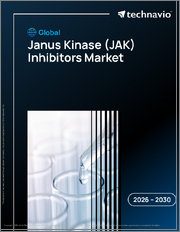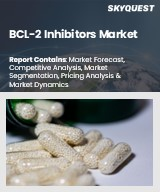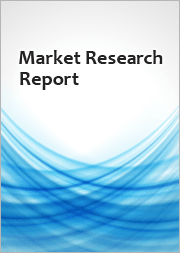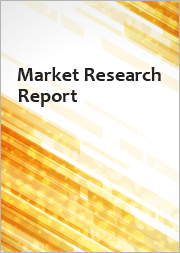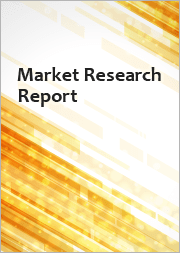
|
시장보고서
상품코드
1658728
STAT3 억제제 시장 기회와 임상시험에 관한 인사이트(-2028년)Global STAT3 Inhibitors Market Opportunity & Clinical Trials Insight 2028 |
||||||
STAT3 억제제의 진보는 암 치료 및 관련 영역에서 유망하면서 거의 미개척 시장에서 큰 기회를 가져옵니다. STAT3은 세포 증식, 생존, 면역 반응, 염증 등 다양한 세포 과정의 관리에 매우 중요합니다. 그 비정상적인 활동은 여러 질병, 특히 암의 발병과 진행과 관련이 있습니다. 암의 역학에서 본질적인 기능을 감안할 때, STAT3를 표적으로 하는 것은 종양의 증식, 전이, 면역 회피, 치료에 대한 저항성 등 몇 가지 중요한 종양 형성 메커니즘에 영향을 미치는 두드러진 기회를 제공하게 됩니다. STAT3 억제제는 상당히 유망함에도 불구하고, STAT3 억제제 시장은 아직 초기 단계에 있으며, 승인된 약물은 골로티모드 1종 밖에 없으며, 그 사용은 입수가 용이하고 적용이 용이하다는 점에서 제한됩니다.
효과적인 암 치료에 대한 임박한 수요로부터 제약회사와 연구기관 사이에서는 STAT3 억제제와 같은 혁신적인 전략 조사에 관심이 모아지고 있습니다. STAT3을 표적으로 하는 약제의 창조는 약제 내성이나 중대한 부작용을 자주 일으키는 화학요법 등, 기존의 암 치료와 관련된 많은 과제를 극복하는 수단으로 생각되고 있습니다. 종양의 진전과 전이에 크게 기여하는 STAT3는 암세포의 생존과 증식을 저해하는 매력적인 표적입니다. 그럼에도 불구하고 STAT3 억제제의 상업화에 대한 길에는 효능, 안전성, 양호한 약물동태학적 특성을 입증할 필요성 등의 장애가 있어 임상시험에서 수많은 후보 화합물의 진전을 방해하고 있습니다. 그럼에도 불구하고, 유효한 STAT3 억제제는 암 치료의 결과를 현저하게 개선하고, 약물 내성이나 진행된 병기로 인해 선택이 제한된 환자에게 새로운 선택을 제공할 가능성이 있기 때문에 시장 전체의 가능성은 여전히 큰 것으로 되어 있습니다.
STAT3 억제는 암뿐만 아니라 다양한 자가면역 질환 및 염증성 질환에 대한 유망한 치료 접근법으로 부상하고 있습니다. STAT3가 면역 반응을 매개하고 염증을 조절하는 역할을 하기 때문에 STAT3는 류마티스 관절염, 염증성 장 질환, 건선 등의 질병에 중요한 표적이 되고 있습니다. 이러한 질환에서 STAT3의 조절 이상은 만성 염증, 조직 손상, 자가면역의 발병으로 이어집니다. 그 결과, STAT3 억제제 시장은 종양학에 그치지 않고, 자가면역 질환 및 염증성 질환의 광범위한 질환을 포함할 때까지 확대될 수 있어, 이러한 약제의 치료 용도가 크게 확대될 것입니다. 또한, STAT3 억제에 의해 면역반응을 조절하는 능력은 항바이러스 면역에서 STAT3의 역할이 주목되는 바이러스 감염과 같은 다른 영역에서도 중요한 의미를 가질 수 있습니다. 이러한 치료 용도의 잠재력이 확산됨에 따라 STAT3 억제제는 많은 심각하고 광범위한 건강 문제에 적용 가능한 범용성이 높은 약물 클래스로 자리매김하고 있습니다.
그 결과, STAT3 억제제 시장은 약물 전달 및 제제화 기술에서 혁신의 기회를 제시합니다. 저분자와 펩티드를 이용하는 종래의 방법에서는 생체이용률, 안정성, 세포 내 흡수에 관한 과제에 직면해 왔습니다. 따라서 연구자들은 STAT3 억제제의 치료 효과를 높이기 위해 나노입자 기반 전달 시스템, siRNA 기반 억제제, 온콜라이트 바이러스 등의 첨단 전략을 모색하고 있습니다. 이러한 신규 전달 방법은 종양 세포 및 특정 조직을 보다 정확하게 표적화하고, 표적 해제 효과를 감소시키고, 전체 약물의 안정성을 향상시킴으로써 치료의 정확성과 효능을 개선하는 것을 목표로 합니다. 이러한 혁신적인 접근법은 아직 개발의 초기 단계에 있지만, 기존의 STAT3 억제제와 관련된 한계를 해결할 수있는 가능성을 제공하고보다 효과적이고 표적화된 치료 옵션에 대한 길을 열어줍니다.
기술적 과제에도 불구하고 STAT3 억제제의 잠재적 시장은 광대하고 거의 미개척입니다. 다양한 질병 메커니즘, 특히 암에서 STAT3의 필수 기능을 고려할 때, STAT3을 표적으로 하는 효과적인 약물의 창출은 광범위한 질병의 치료에 혁명을 일으킬 수 있습니다. 연구가 진행되고 약물전달과 타겟팅을 강화하는 혁신적인 전략이 등장함에 따라 STAT3 억제제 시장은 크게 성장하고 제약 부문에서 많은 투자와 관심을 끌 것으로 예상됩니다. 이러한 억제제가 성공을 거두면 암, 자가면역 질환 및 기타 질병에 대한 치료법을 재구성할 수 있으며, 이 분야는 매우 수익성이 높은 아직 아직 개척되지 않은 의약품 개발 영역으로 자리매김할 수 있습니다.
이 보고서는 세계 STAT3 억제제 시장을 조사했으며, 시장 개요와 함께 약물 동향, 임상시험 동향, 지역별 동향 및 시장 진출기업경쟁 구도 등을 제공합니다.
목차
제1장 STAT3 억제제의 소개
제2장 STAT3 억제 접근법
제3장 적응증과 임상 개발 시나리오별 STAT3 억제제의 역할
- 암
- 유방암
- 췌장암
- 폐암
- 흑색종
- 림프종
- 백혈병
- 자가면역 질환 및 염증성 질환
- 미생물 감염증
제4장 STAT3 억제에 대한 치료법
- STAT3 억제제별 표적 요법
- STAT3 억제제 단독요법
- STAT3 억제제와 병용 요법
제5장 세계의 STAT3 억제제 시장 전망
- 현재 임상 개발 및 상업화 시나리오
- 미래 동향 분석
제6장 세계의 STAT3 억제제의 임상 파이프라인 개요
- 국가별
- 적응증별
- 조직별
- 상별
제7장 세계의 STAT3 억제제 임상 파이프라인(기업별, 적응증별, 상별)
- 연구
- 전임상
- Phase-I
- Phase-I/II
- Phase-II
- Phase-II/III
- 사전등록
제8장 상시된 STAT3 억제제의 임상 및 특허에 관한 통찰
제9장 STAT3 억제제 시장 역학
제10장 경쟁 구도
- Accendatech
- Baylor College of Medicine
- C&C Research Laboratories
- Daewoong Pharmaceutical
- Entero Therapeutics
- GLG Pharma
- Hanlim Pharmaceutical
- Immix Biopharma
- Institut Pasteur Korea
- Ionis Pharmaceuticals
- Jiangsu Hengrui Medicine Co.
- Kymera Therapeutics
- Moleculin
- NeuroBo Pharmaceuticals
- NovoMedix
- Singh Biotechnology
- Sumitomo Pharma
- Tvardi Therapeutics
- UNION Therapeutics
- University of Texas MD Anderson Cancer Center
Global STAT3 Inhibitors Market Opportunity & Clinical Trials Insight 2028 Report Highlights:
- Global STAT3 Inhibitors Market Current & Future Outlook
- Therapeutic Approaches For STAT3 Inhibition
- Comprehensive STAT3 Inhibitor Drugs in Clinical Trials: > 20 Drugs
- Global STAT3 Inhibitors Clinical Trials Overview By Company, Indication & Phase
- STAT3 Inhibitors Market Dynamics
- Competitive Landscape: 20 Companies
The advancement of STAT3 inhibitors presents a significant opportunity within a promising yet largely uncharted market in cancer treatment and related areas. STAT3 is crucial in managing a variety of cellular processes, such as cell proliferation, survival, immune response, and inflammation. Its aberrant activity is associated with the onset and progression of multiple diseases, particularly cancer. Given its essential function in cancer dynamics, targeting STAT3 offers a distinctive chance to influence several vital tumorigenic mechanisms, including tumor growth, metastasis, immune evasion, and resistance to therapies. Despite its considerable promise, the market for STAT3 inhibitors is still in its infancy, with only one approved medication Golotimod available, and its use is restricted in terms of accessibility and application.
The pressing demand for effective cancer therapies has sparked interest among pharmaceutical companies and research institutions to investigate innovative strategies, such as STAT3 inhibition. The creation of drugs targeting STAT3 is viewed as a means to overcome many challenges associated with existing cancer treatments, such as chemotherapy, which frequently results in drug resistance and significant adverse effects. As a major contributor to tumor advancement and metastasis, STAT3 is an appealing target for disrupting the survival and growth of cancer cells. Nevertheless, the path to commercializing STAT3 inhibitors is fraught with obstacles, including the necessity to demonstrate their efficacy, safety, and favorable pharmacokinetic characteristics, which have impeded the progress of numerous candidates in clinical trials. Nonetheless, the overall market potential remains substantial, as effective STAT3 inhibitors could significantly enhance cancer treatment outcomes and offer new options for patients facing limited alternatives due to drug resistance or advanced disease stages.
STAT3 inhibition has emerged as a promising therapeutic approach not only for cancer but also for various autoimmune and inflammatory diseases. Given STAT3's role in mediating immune responses and regulating inflammation, it serves as a vital target for conditions such as rheumatoid arthritis, inflammatory bowel disease, and psoriasis. The dysregulation of STAT3 in these disorders leads to chronic inflammation, tissue damage, and the onset of autoimmunity. Consequently, the market for STAT3 inhibitors may expand beyond oncology to encompass a wide array of autoimmune and inflammatory conditions, thereby significantly broadening the therapeutic applications of these agents. Furthermore, the ability to modulate immune responses through STAT3 inhibition could have significant implications in other areas, including viral infections, where the role of STAT3 in antiviral immunity is gaining attention. This broadening range of potential therapeutic uses positions STAT3 inhibitors as a versatile class of drugs applicable to numerous serious and widespread health issues.
As a result, the market for STAT3 inhibitors presents opportunities for innovation in drug delivery and formulation techniques. Conventional methods utilizing small molecules and peptides have faced challenges related to bioavailability, stability, and cellular uptake. Consequently, researchers are exploring advanced strategies such as nanoparticle-based delivery systems, siRNA-based inhibitors, and oncolytic viruses to enhance the therapeutic efficacy of STAT3 inhibitors. These novel delivery methods aim to improve treatment precision and effectiveness by enabling better targeting of tumor cells or specific tissues, reducing off-target effects, and increasing overall drug stability. Although these innovative approaches are still in the early phases of development, they offer the potential to address the limitations associated with traditional STAT3 inhibitors, paving the way for more effective and targeted therapeutic options.
Despite the technical challenges, the potential market for STAT3 inhibitors is vast and largely underexplored. Given the essential function of STAT3 in various disease mechanisms, especially in cancer, the creation of effective drugs that target STAT3 could revolutionize the treatment of a wide array of diseases. As research advances and innovative strategies for enhancing drug delivery and targeting emerge, the market for STAT3 inhibitors is expected to grow significantly, drawing considerable investment and attention from the pharmaceutical sector. If these inhibitors prove successful, they could reshape the therapeutic landscape for cancer, autoimmune disorders, and other conditions, positioning this field as a highly profitable yet still largely unexplored domain of drug development.
Table of Contents
1. Introduction To STAT3 Inhibitors
2. STAT3 Inhibition Approaches
- 2.1 Direct Inhibition
- 2.2 Indirect Inhibition
3. Role Of STAT3 Inhibitors By Indication & Clinical Development Scenario
- 3.1 Cancer
- 3.1.1 Breast Cancer
- 3.1.2 Pancreatic Cancer
- 3.1.3 Lung Cancer
- 3.1.4 Melanoma
- 3.1.5 Lymphoma
- 3.1.6 Leukemia
- 3.2 Autoimmune & Inflammatory Diseases
- 3.3 Microbial Infections
4. Therapeutic Approaches For STAT3 Inhibition
- 4.1 Targeted Therapy With STAT3 Inhibitors
- 4.2 Monotherapy With STAT3 Inhibitors
- 4.3 Combination Therapies With STAT3 Inhibitors
5. Global STAT3 Inhibitors Market Outlook
- 5.1 Current Clinical Development & Commercialization Scenario
- 5.2 Future Trends Analysis
6. Global STAT3 Inhibitors Clinical Pipeline Overview
- 6.1 By Country
- 6.2 By Indication
- 6.3 By Organization
- 6.4 By Phase
7. Global STAT3 Inhibitors Clinical Pipeline By Company, Indication & Phase
- 7.1 Research
- 7.2 Preclinical
- 7.3 Phase-I
- 7.4 Phase-I/II
- 7.5 Phase-II
- 7.6 Phase-II/III
- 7.7 Preregistration
8. Marketed STAT3 Inhibitor Drug Clinical & Patent Insight
9. STAT3 Inhibitors Market Dynamics
- 9.1 Drivers & Opportunities
- 9.2 Challenges & Restraints
10. Competitive Landscape
- 10.1 Accendatech
- 10.2 Baylor College of Medicine
- 10.3 C&C Research Laboratories
- 10.4 Daewoong Pharmaceutical
- 10.5 Entero Therapeutics
- 10.6 GLG Pharma
- 10.7 Hanlim Pharmaceutical
- 10.8 Immix Biopharma
- 10.9 Institut Pasteur Korea
- 10.10 Ionis Pharmaceuticals
- 10.11 Jiangsu Hengrui Medicine Co.
- 10.12 Kymera Therapeutics
- 10.13 Moleculin
- 10.14 NeuroBo Pharmaceuticals
- 10.15 NovoMedix
- 10.16 Singh Biotechnology
- 10.17 Sumitomo Pharma
- 10.18 Tvardi Therapeutics
- 10.19 UNION Therapeutics
- 10.20 University of Texas M. D. Anderson Cancer Center






